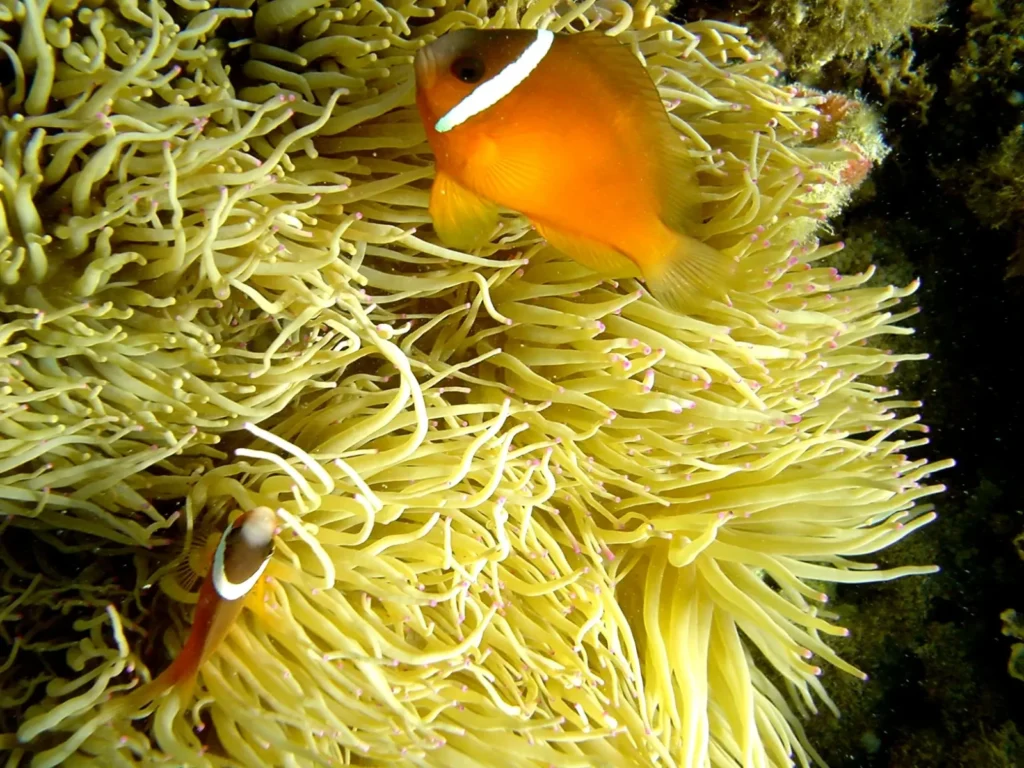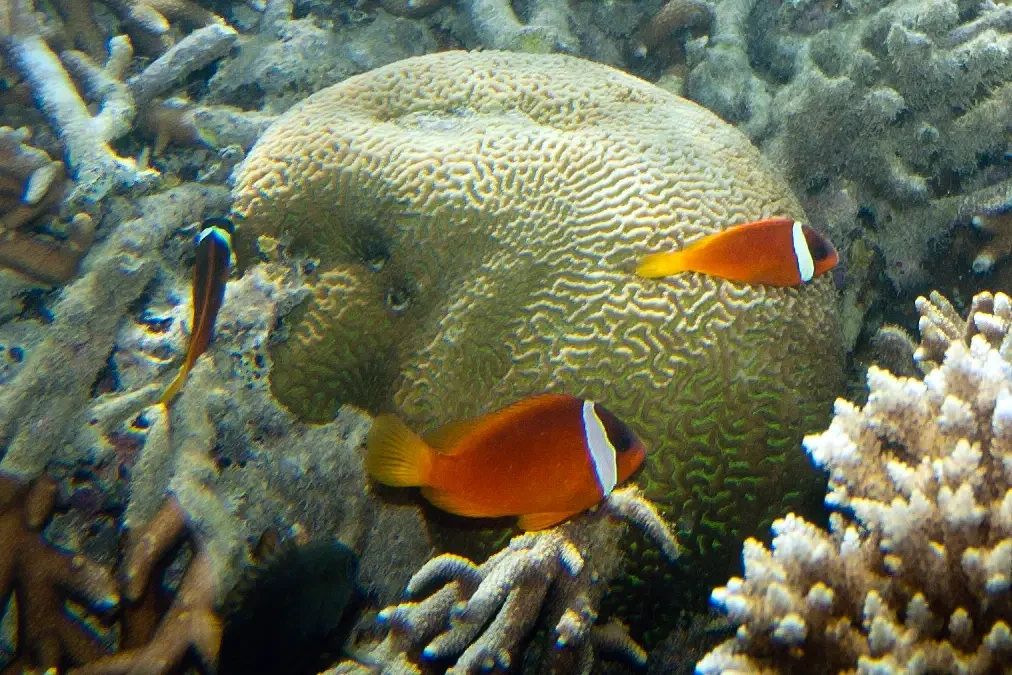Barber's Clown (Amphiprion barberi) is a bright and energetic member of the pomacentrid family (Pomacentridae), which lives in the tropical waters of the Pacific Ocean. First described in 2008, it is a relatively new species for sciencealthough local fishermen have long known about its existence.
✔ Bright orange color with white stripes
✔ It lives in symbiosis with sea anemones
✔ It is endemic to the Western Pacific Ocean
✔ Aggressive and territorial nature
This article will cover all aspects of the life of this unique species, from its habitat and behavior to threats to its existence and conditions in aquariums.

Scientific classification
✔ The Kingdom: Animals (Animalia)
✔ Type: Chordal (Chordata)
✔ Class: Lucheperi pisces (Actinopterygii)
✔ Row: Perch-like (Perciformes)
✔ Family: Pomacentrovye (Pomacentridae)
✔ Gender: Amphiprions (Amphiprion)
✔ View: Amphiprion barberi
✔ Described: Allen, 2008
This species was named after the famous ichthyologist Paul Barber (Paul Barber), which was engaged in research of clownfish in the Pacific Ocean.
Habitat and habitat
🌏 Distribution:
Обит Inhabits waters Fiji, Tonga, Samoa, Vanuatu and Solomon Islands
🔹 The largest populations occur around Fiji
🏝 Living environment:
, Populates coastal coral reefs
, Lives on at depths of 1-25 meters
💥 Picks calm lagoons and areas with rich coral structure
This species is very attached to its habitat and rarely leaves the confines of the Anemone it lives in.
Appearance and coloring
🎨 Main Features:
✔ Bright orange or red-orange body
✔ Two white stripes:
* The first one is behind the eyes
* The second one is in the middle of the body
✔ Darker shade in the back of the body and on the caudal fin
✔ It may have a golden sheen in certain lighting conditions
✔ Reaches a size of 10-12 cm
🎭 Sexual dimorphism:
✔ Females bigger and more massive males
✔ The largest male in the group can change the sex after the death of the female
Bright coloring allows Barber's clown easily recognize your relatives and communicate with each other.
Lifestyle and behavior
✅ Symbiosis with anemones
✔ Stacks a mutually beneficial alliance with anemones, such as Heteractis magnifica and Stichodactyla gigantea
✔ Produces special slimewhich protects it from stinging anemone cells
✔ Anemone provides it with protection from predators, and the fish cleans it of food residues
✅ Social structure
✔ Live groups of 2-5 individuals
✔ In a group the largest female dominates
✔ If the female dies, the largest male changes sex
✅ Aggressiveness and territoriality
✔ Protects your anemone from other clownfish and small predators
✔ Very aggressive to other fish species
Food
🔹 Basic diet:
✔ Zooplankton
✔ Small crustaceans
✔ Seaweed
🔹 Nutrition features:
✔ Omnivorous fish that preys on plankton
✔ Sometimes eats leftover food anemones
Reproduction
🔹 Proteroginal hermaphrodite:
✔ First born as a male, but able to change gender
🔹 Spawning process:
✔ Female lays eggs 500-1000 eggs
✔ The male takes care of the caviar, cleans it and protects it
✔ Larvae hatch via 6-8 days

Predators and threats
🔸 Natural enemies:
✔ Large predatory fish
✔ Octopus and moray eels
🔸 Main threats:
✔ Catch for the aquarium trade
✔ Destruction of coral reefs
✔ Climate change
This species depends on coral reefs, so their degradation is a serious threat to its existence.
Keeping in aquariums
🟠 Popularity:
✔ Available for marine aquariums
✔ Relatively easy to clean
🟠 Aquarium requirements:
✔ Volume: from 100 liters
✔ Temperature: 24–28°C
✔ Salinity: 1.020–1.025
✔ It is advisable to keep it together with an anemone
🟠 Compatibility:
✔ Peaceful sea fish
✔ Other clownfish (if there is enough room)
This view is suitable for experienced aquarists, because it needs stable water parameters.
Interesting facts
🔹 This species was officially described only in 2008
🔹 It has one of the brightest orange coloring pages among clownfish
🔹 It lives up to 12 years in nature and aquariums
🔹 One of the most territorial clownfish
Conclusion
Barber's Clown (Amphiprion barberi) is a unique representative of clownfishwhich fascinates with its color and behavior. His life is closely connected with anemones, and the main threat to him is the disappearance of coral reefs.
📢 Ocean conservation is about preserving clownfish! 🌊🐠💙
